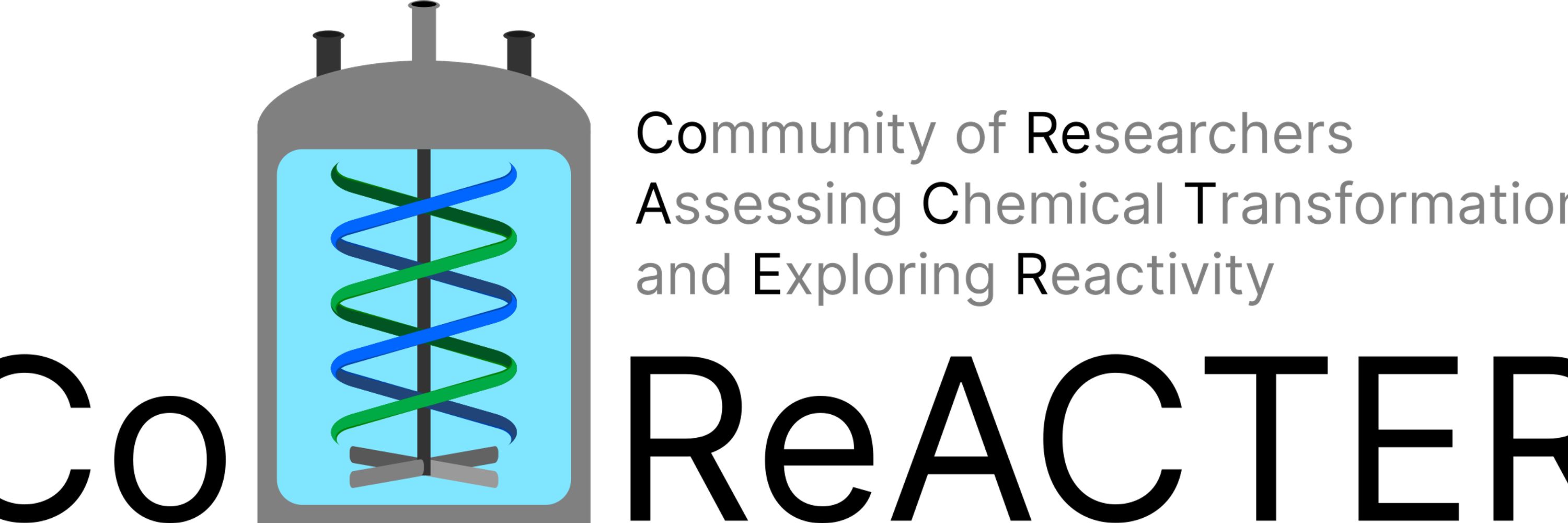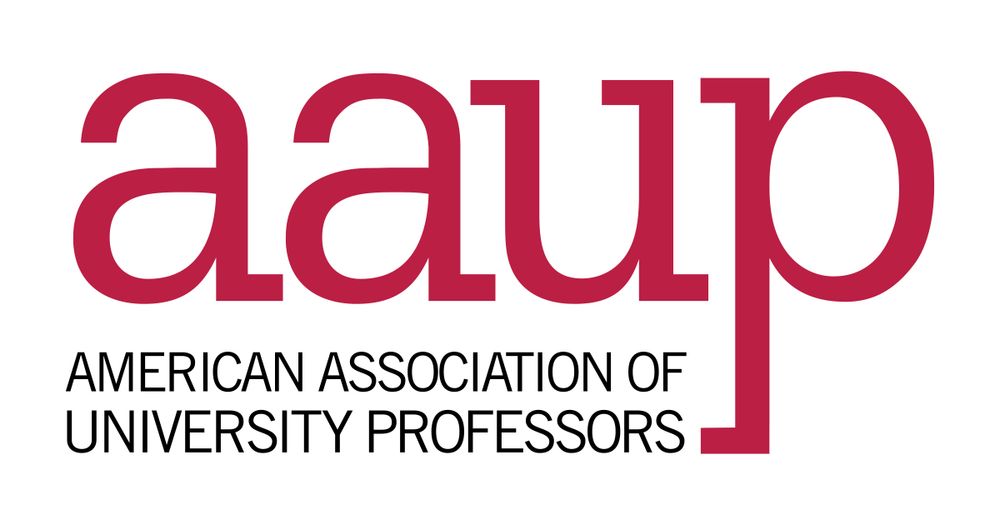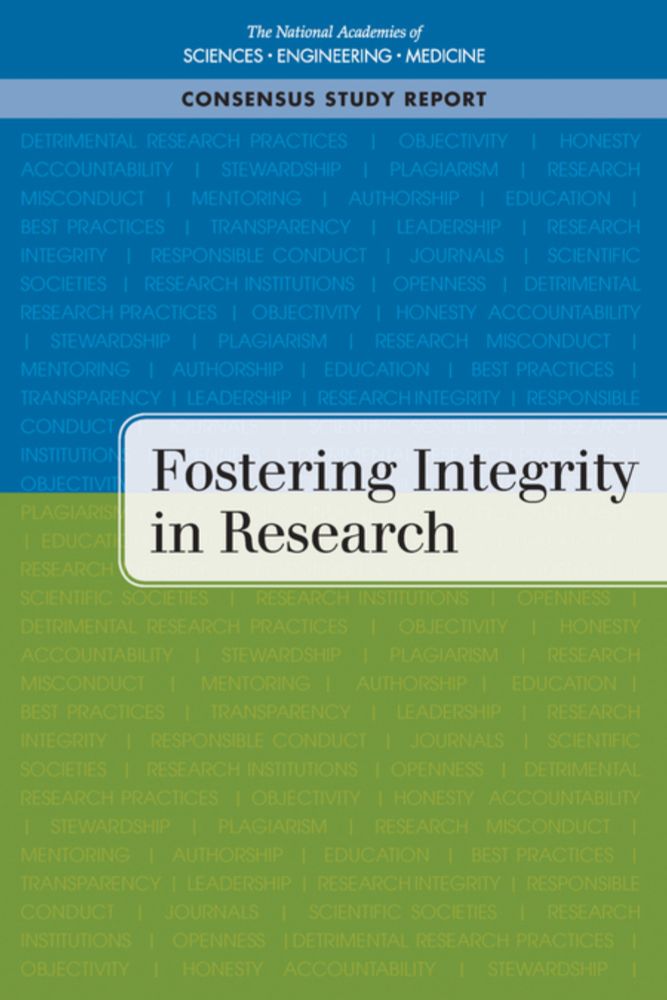CoReACTER
@coreacter.org
24 followers
9 following
17 posts
Community of Researchers Assessing Chemical Transformations and Exploring Reactivity (coreacter.org) |
Democratic, anti-oppressive research org. focused on reactivity and sustainability |
School of Chemistry, University College Dublin |
Views our own
Posts
Media
Videos
Starter Packs
Pinned
Reposted by CoReACTER
CoReACTER
@coreacter.org
· Sep 11
Government of Ireland Postgraduate Scholarship Programme - Research Ireland
The Government of Ireland Postgraduate Scholarship Programme is an established national initiative, funded by the Department of Further and Higher Education, Research, Innovation and Science, and mana...
www.researchireland.ie
CoReACTER
@coreacter.org
· Jul 7
CoReACTER
@coreacter.org
· Jul 7
CoReACTER
@coreacter.org
· Jul 7
CoReACTER
@coreacter.org
· Jul 7
CoReACTER
@coreacter.org
· Jul 7
CoReACTER
@coreacter.org
· Jul 7
CoReACTER
@coreacter.org
· Jul 7
CoReACTER
@coreacter.org
· Jul 7
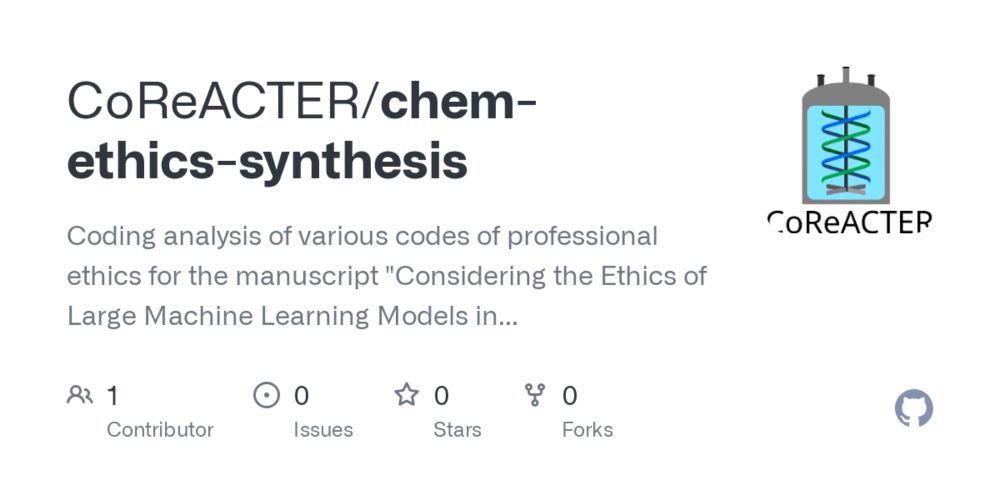
GitHub - CoReACTER/chem-ethics-synthesis: Coding analysis of various codes of professional ethics for the manuscript "Considering the Ethics of Large Machine Learning Models in the Chemical Sciences"
Coding analysis of various codes of professional ethics for the manuscript "Considering the Ethics of Large Machine Learning Models in the Chemical Sciences" - CoReACTER/chem-ethics-synth...
github.com
CoReACTER
@coreacter.org
· May 28
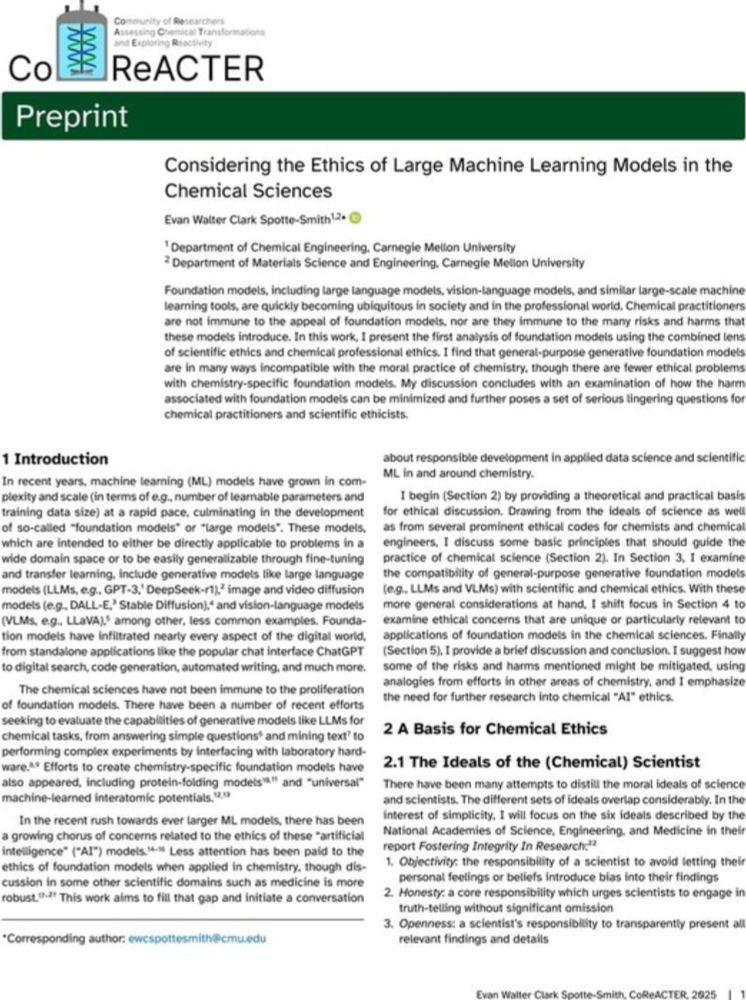
Considering the Ethics of Large Machine Learning Models in the Chemical Sciences
Foundation models, including large language models, vision-language models, and similar large-scale machine learning tools, are quickly becoming ubiquitous in society and in the professional world. Ch...
doi.org
CoReACTER
@coreacter.org
· Mar 7
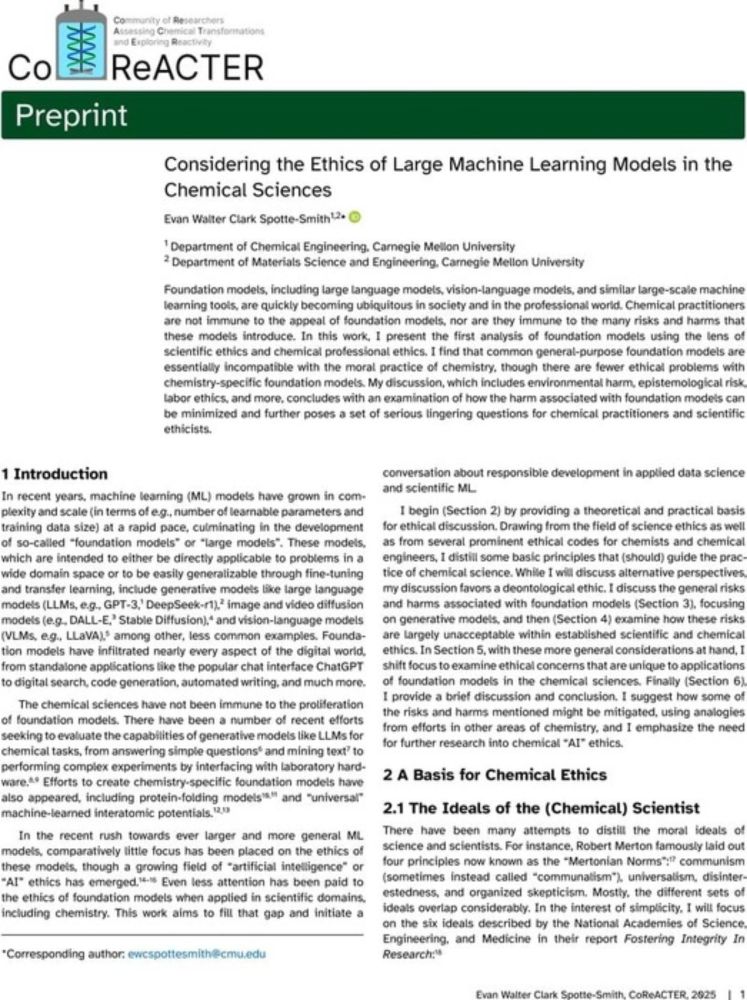
Considering the Ethics of Large Machine Learning Models in the Chemical Sciences
Foundation models, including large language models, vision-language models, and similar large-scale machine learning tools, are quickly becoming ubiquitous in society and in the professional world. Ch...
chemrxiv.org
